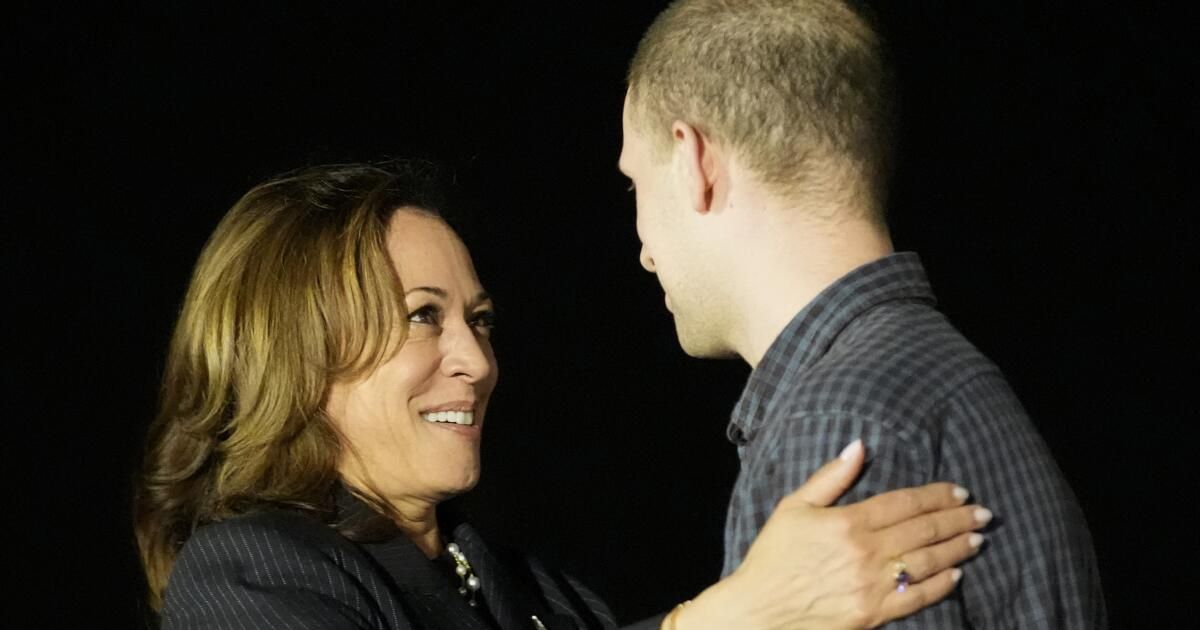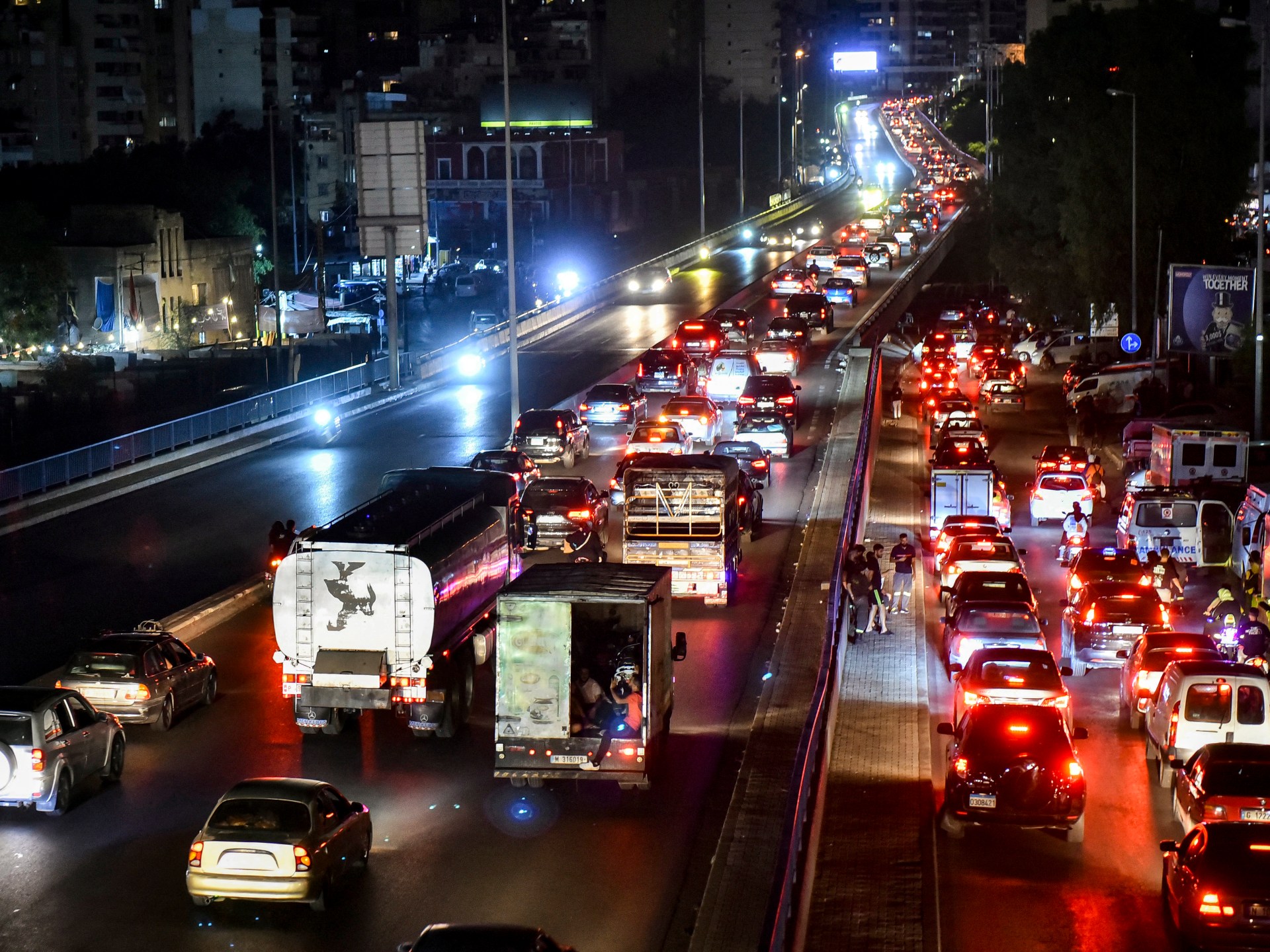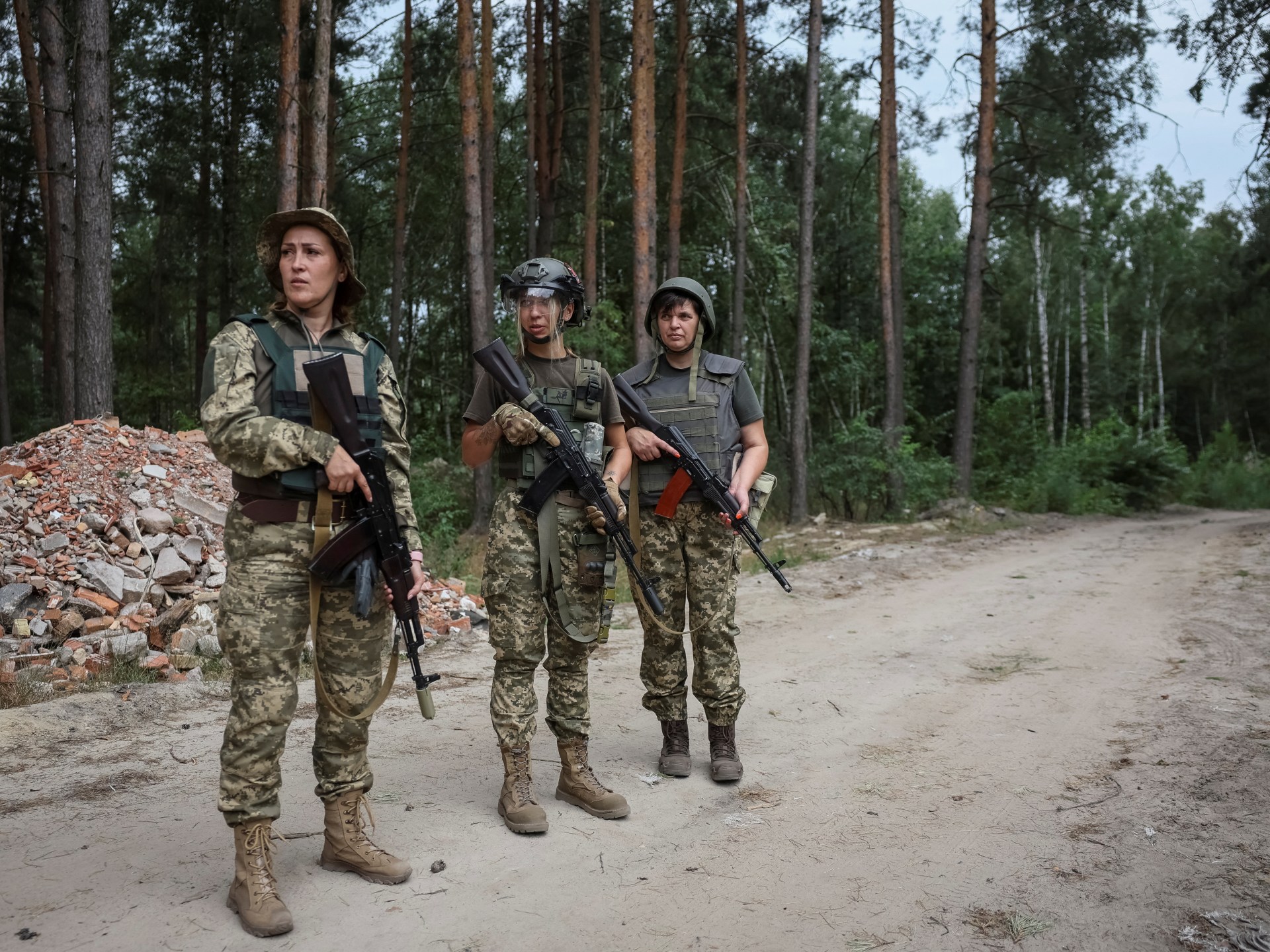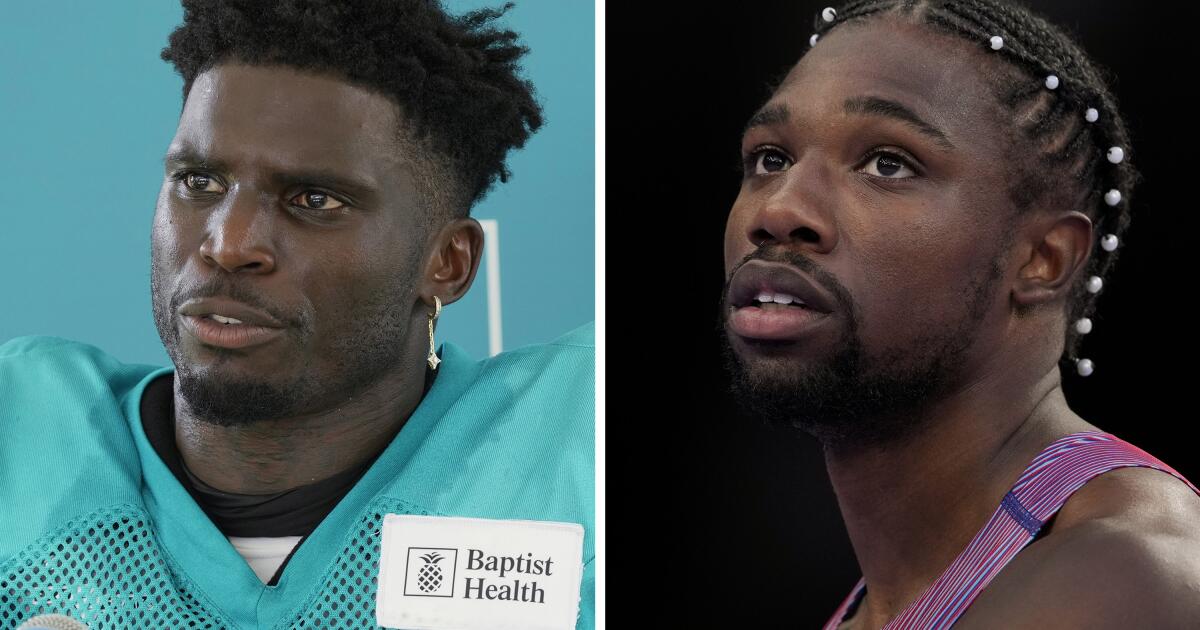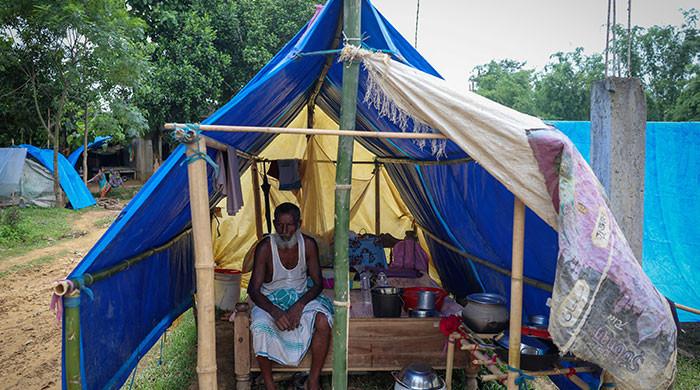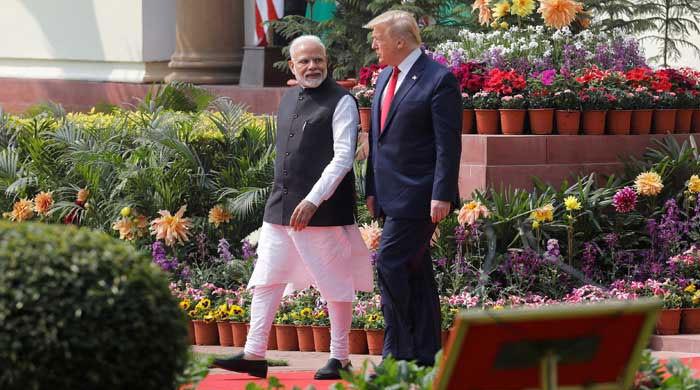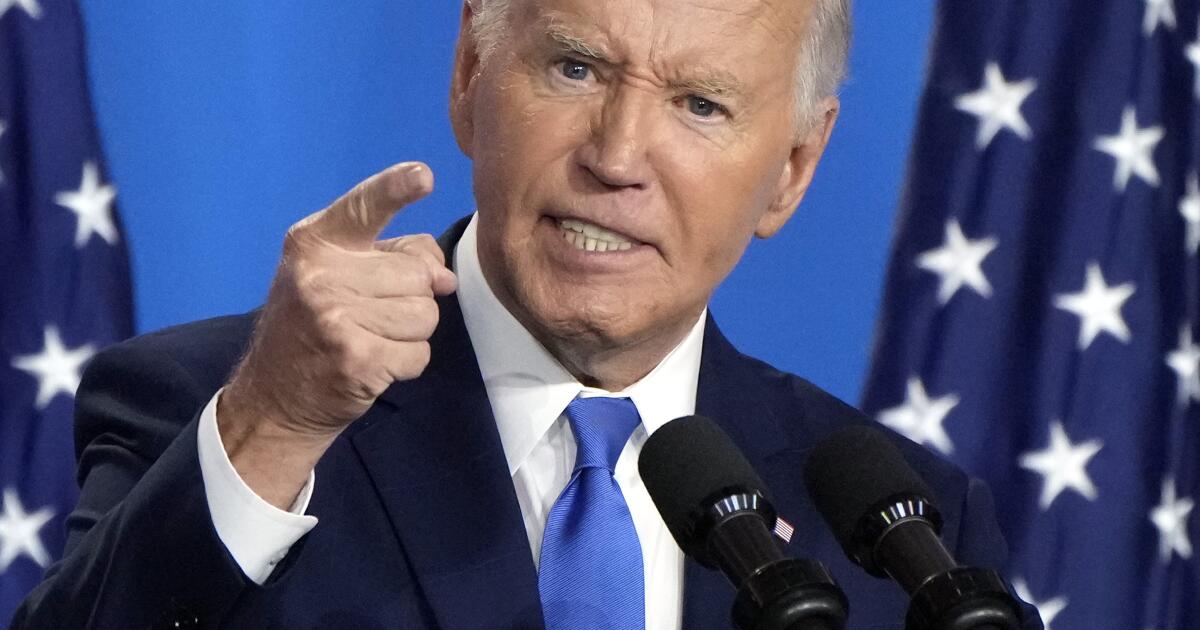As Americans liberated from Russia set foot on U.S. soil Thursday evening, the first hugs came from a beaming President Biden and Vice President Kamala Harris.
The scene showed a dramatic, moving and possibly life-saving rescue of “unjustly detained” American citizens.
It was also the kind of image that political election campaigns would pay a fortune for.
Politics, perhaps inevitably, became a subtext of the multinational prisoner exchange that freed 16 Westerners from Russia and sent eight Russian spies and at least one convicted murderer back to Russia.
In announcing the deal, which was reached after a hard-fought battle, Biden credited relations with U.S. allies, especially Germany, that he had worked to repair after the era when then-President Trump disregarded those alliances. Even now, Republicans are campaigning on a platform promoting isolationism.
“Allies matter,” Biden said from the White House on Thursday morning, surrounded by the prisoners’ families as he announced that the exchange was underway.
“For anyone wondering if allies matter, they do,” he said in a not-so-subtle dig at the Republican Party. “Today is a powerful example of why it is vital to have friends in this world. Friends you can trust, you can work with, and you can depend on, especially on matters of great importance and sensitivity like this.”
Biden said Poland, Slovenia, Norway and Turkey, as well as Germany, had to be persuaded to make “bold and courageous” decisions to cooperate, in some cases agreeing to release criminals for nothing in return. All five countries are members of NATO, a long-standing goal of Trump.
Biden was able to burnish his legacy as a world leader with sharp diplomatic skills in the twilight of his long political career, a redemptive and validating moment for a man who had essentially been pushed aside.
At the same time, administration officials were deliberate in placing Harris, the presumptive Democratic nominee, center stage. They emphasized what they described as her role in sealing the deal, including a one-on-one meeting with German Chancellor Olaf Scholz, a reluctant participant in the exchange.
Scholz's consent was essential because the release from a German prison of a convicted Russian government assassin who had killed a former Chechen rebel in broad daylight in Berlin satisfied Russian President Vladimir Putin's main demand. (Germany received five of its citizens who had been imprisoned in Russia.)
Administration officials also made sure Harris was at Joint Base Andrews, home of the U.S. military airport outside Washington where the freed Americans arrived, on time Thursday night to be part of the reception. Earlier Thursday, her participation was not guaranteed because she was in Texas delivering a eulogy at the funeral of Democratic Rep. Sheila Jackson Lee.
“It’s an incredible day and you can see it in the families and in their eyes,” Harris said from the tarmac where the freed Americans disembarked. The former captives, she said, showed “incredible courage in the face of horrific and devastating circumstances.”
She enjoyed the exciting moment and praised her boss and what his policies (many of them hers too) can achieve.
“This is an extraordinary testament to the importance of having a president who understands the power of diplomacy and strengthening alliances,” he said.
Whether intentional or not, the deal also proved Trump wrong when he recently suggested that only he could free the most well-known journalist among the captive Americans, Wall Street Journal reporter Evan Gershkovich, because of his friendship with Russia’s autocratic president. He had said Putin would release the journalist as a “favor” when Trump won the election.
It is unclear what impact all this will have on voters.
But Trump didn’t wait to find out. He quickly launched into a disparaging tirade against the prisoner exchange, suggesting without evidence that the government might have paid cash for the release of Gershkovich, Alsu Kurmasheva and Paul Whelan. U.S. officials said they paid nothing to Russia and agreed to no relief from any of the many sanctions Washington has imposed since Putin invaded Ukraine.
The American negotiators were “a disgrace,” Trump said.
“They are calling trade ‘complex,’” the Republican presidential candidate wrote on Truth Social, his social media platform. “That’s so no one realizes how serious it is!”
Every president in recent years, including Trump, has overseen deals to free American citizens from incarceration in foreign countries.
Asked during his White House remarks about Trump’s boasts that he could have released the hostages without giving up anything, Biden replied dryly: “Why didn’t he do it when he was president?”
Trump's running mate, Ohio Sen. JD Vance, made the unusual claim that Moscow acted out of fear of a Trump presidency.
“We have to ask ourselves why they are coming home,” he said on CNN. “And I think it’s because the bad guys around the world recognize that Donald Trump is about to come back to power, so they are cleaning up.
“That's a good thing and I think it's a testament to the strength of Donald Trump,” Vance said.
The comment left senior administration officials scratching their heads.
“Well, on the last comment, I don't know what to say,” White House national security spokesman John Kirby said on CNN on Friday.
“There is absolutely no evidence that this deal was reached because of any potential fear about who the next president might be,” Kirby said.
However positive and optimistic the scenes of the return may have been, Democrats may be reluctant to use them in the campaign. The prisoner exchange has some consequences: among the Russians released from Western custody in the exchange are convicted criminals.
In addition to the government assassin, there was a covert cell posing as an Argentine couple with children while spying; alleged malicious hackers; people accused of violating sanctions to steal US military technology for Russia, presumably for use in its war in Ukraine.
In contrast, the Westerners Russia released were seen by the United States as innocents: journalists and peaceful opponents of the Putin regime.
Critics also point out that such exchanges risk sending the message that rogue nations or entities can capture Americans or other Westerners and that the United States will cut a deal.
“We need to find a way to break the cycle of innocent people being imprisoned in Russia on false charges and used as bargaining chips by Putin to secure the release of cold-blooded killers who acted on his behalf,” said Sen. Lindsey Graham (R-S.C.). “Russia must pay a higher price in the future when it turns innocent people into pawns of its corrupt regime.”
Meanwhile, Biden’s X account shows photos and videos of the former captives happily hugging their relatives. “Tonight is about reuniting families,” Biden wrote in one post. “Welcome home, Paul, Evan, and Alsu. You are right where you belong.”

